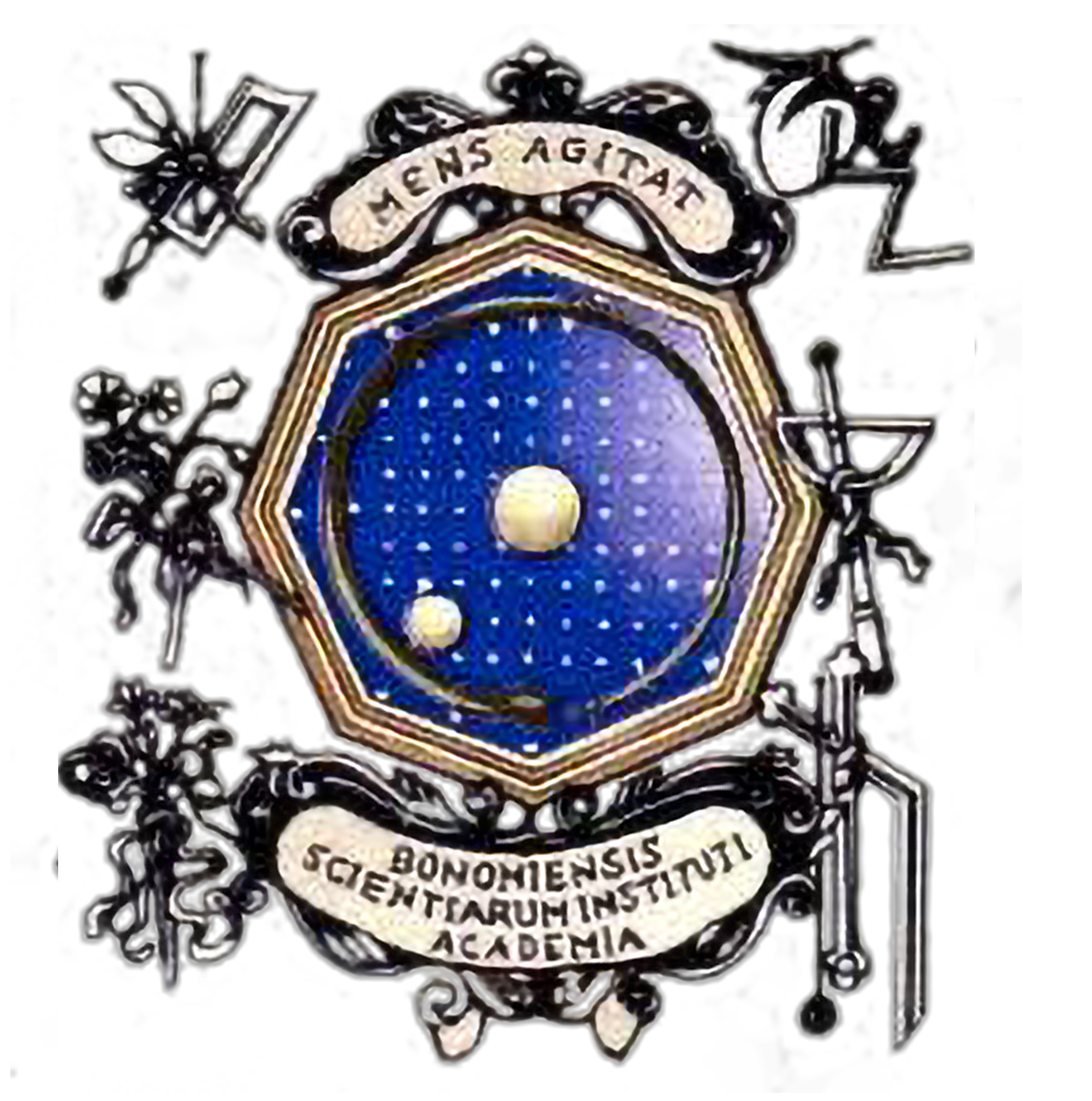Introduzione/Introduction
Grazie all’impegno del nostro Presidente, il Professor Luigi Bolondi, con il presente volume riprende, anche se con alcune innovazioni, la pubblicazione delle Sitzungsberichte della Classe di Scienze Morali dell’Accademia delle Scienze dell’Istituto di Bologna, la cui denominazione ufficiale diviene ora quella di Annales. Acta Academiae Scientiarum Instituti Bononiensis. Classis Scientiarum Moralium. Tale serie affianca gli Annales. Class of Physical Sciences, che raccolgono i lavori propri della Classe di Scienze Fisico-Matematiche, serie che viene diretta dal collega Accademico Professor Pierluigi Contucci. Gli Annales, come mostra il titolo comune alle due diverse classi, vogliono dare testimonianza sia del lavoro annuale svolto dai sodali dell’Accademia, sia attrarre contributi di colleghi la cui ricerca è vicina alle sensibilità della nostra istituzione, con una particolare attenzione per i giovani studiosi. La scelta di distinguere l’intitolazione delle due serie, anche nelle lingue, con la rispettiva adozione del latino e dell’inglese, non vuole affatto marcare una distanza, ma semplicemente rappresentare l’ampiezza delle declinazioni che intendiamo coprire, dalla tradizione all’innovazione, e quindi, nel segno dell’innovazione nella tradizione. Non a caso i due volumi sono interconnessi nella collocazione di alcuni articoli, visto che i confini del sapere umanistico e scientifico esistono solo per essere travalicati dall’intelligenza e dalla trasversalità dei contenuti. Per quanto concerne l’uso delle lingue, nella serie della Classe di Scienze Morali abbiamo preferito lasciare gli autori piuttosto liberi, sia nell’uso dell’inglese o dell’italiano, ma anche di altre lingue correntemente utilizzate nelle discipline di riferimento in modo così sia da favorire la presenza di lavori di soci stranieri sia di evitare pregiudiziali mono-linguistiche non sempre condivise.
Gli Annales si giovano di una versione cartacea affiancata da una in open access, che garantisce il rispetto dei più moderni criteri di disseminazione del sapere secondo gli scopi etici propri di un’Accademia scientifica come la nostra. D’altro canto, non solo alla rete, ma anche alle Biblioteche, vogliamo lasciare testimonianza viva di quest’opera, affinché la dematerializzazione non rappresenti proprio una dissoluzione del libro e del suo senso storico-culturale. Insomma, in medio stat virtus. In un quadro di realismo operativo, e con criteri similari tra le due classi, i lavori pubblicati sono stati sottoposti a peer review, in modo che l’edizione degli Annales rispetti (almeno per il conteso umanistico) i criteri di qualità necessari alla validazione di siffatti prodotti nelle sedi preposte a tale scopo. Per facilitare questo risultato specifico, per quanto gli Annales della Classe di Scienze Morali aspirino ad essere anche una rivista accreditata, abbiamo altresì ritenuto utile secondo le norme attuali fornire il volume di un ISBN. In tal modo i singoli articoli potranno essere classificati anche come contributi in volume e la loro pubblicazione risultare più utile soprattutto per i giovani ricercatori e comunque per tutti coloro che avranno necessità di far pesare il proprio lavoro intellettuale secondo le regole del sistema universitario italiano. Non che tale filosofia, un po’ utilitaristica, trovi tra gli editores un particolare entusiasmo, ma è nostro desiderio dare il massimo di valore all’impegno di coloro che hanno deciso e che in futuro decideranno di scegliere l’Accademia e le sue sedi editoriali come luogo ove presentare le proprie ricerche e pubblicarne i risultati.
Questo volume, come i prossimi, annovera sia contributi presentati e discussi in specifiche sessioni dell’Accademia o durante convegni e seminari organizzati nel suo ambito, come in particolare parte del materiale ancora inedito di un importante convegno dedicato a Luigi Ferdinando Marsili, ma anche studi che sono stati singolarmente proposti alla nostra attenzione.
Ringraziamo ancora il Presidente Professor Luigi Bolondi per il sostegno e la determinazione nell’aver voluto ripristinare una tradizione doverosa, insieme agli autori per la loro diligente collaborazione, nonché la redazione della BUP, che ci ha assistito con professionalità ed efficacia. Un’espressione di gratitudine profonda deve essere rivolta all’indirizzo della Dottoressa Angela Oleandri, la quale ha vigilato sulle diverse fasi della produzione di questo volume, garantendone l’uscita tempestiva con enorme impegno e dedizione. Last but not least, una menzione di gratitudine al Prof. Paolo Ognibene, che mi ha affiancato nel corso dell’elaborazione del volume con un significativo dispendio di energie e di tempo.
Mi auguro che il lavoro prodotto risulti gradito agli Accademici e che consolidi il prestigio di questa antica e benemerita Accademia italiana.
Thanks to the dedication of our President, Professor Luigi Bolondi, we resume with the present volume, albeit with some innovations, the publication of the Sitzungsberichte of the Class of Moral Sciences of the Academy of Sciences of Bologna Institute, whose official title now becomes Annales. Acta Academiae Scientiarum Instituti Bononiensis. Classis Scientiarum Moralium. This series runs alongside the Annales. Class of Physical Sciences, which collects the works of the Class of Physical-Mathematical Sciences, a parallel series directed by our fellow and Academician, Professor Pierluigi Contucci. The volumes of the Annales, (as shown by the title, which is common to the two different classes), aim to bear witness both to the annual work carried out by the members of the Academy and to attract contributions from colleagues, whose research is close to the interests of our institution, with particular attention to young scholars. The choice to distinguish the title of the two series, even in the languages, with the respective adoption of Latin and English, does not at all intend to place any distance between the parties involved, but simply it represents the breadth of the fields which we intend to cover, from tradition to innovation, and therefore, innovation within tradition. It is no coincidence that the two volumes are interconnected in the arrangement of some articles, given that the boundaries of humanistic and scientific knowledge exist only to be transcended by the intelligence and transversality of the contents. With regard to the linguistic policy, in the Moral Sciences Class series we preferred to leave the authors rather free to use either English or Italian, but also other languages currently mastered in the relevant disciplines in such a way as to both encourage the presence of works by foreign members and avoid mono-linguistic prejudices that are not always shared in our community.
The Annales benefits from a paper version supported by an open access version, which guarantees compliance with the most modern criteria for disseminating knowledge according to the ethical purposes of a scientific academy like ours. On the other hand, we want to leave a living testimony of this work not only to the web, but also to the libraries, so that dematerialization should not represent a dissolution of the concrete book and its historical-cultural meaning. In short, in medio stat virtus. In a framework of operational realism, and with similar criteria between the two classes, the published works were subjected to peer review, so that the edition of the Annales respects (at least for the humanistic context) the quality criteria necessary for the validation of such products according to the legal standards designated for this purpose. To facilitate this specific result, although the Annales of the Class of Moral Sciences also aspires to be an accredited journal, we have also deemed that it was useful to provide the volume with an ISBN according to current regulations. In this way the individual articles can also be classified as volume contributions and their publication will be more useful, especially for young researchers and in any case for all those who will need to make their intellectual work valid in conformity with the rules of the Italian (and not only that one) university system. Although this somewhat utilitarian philosophy did not receive particular enthusiasm from among the editors, it is our desire to give the maximum value to the commitment of those who have decided and who in the future will decide to choose the Academy and its editorial products as a place to present one’s research and publish its results.
This volume, like the subsequent ones, includes contributions presented and discussed in specific sessions of the Academy or during conferences and seminars organized within its scope, as in particular part of the still unpublished material from an important conference dedicated to Luigi Ferdinando Marsili, but also studies that have been individually brought to our attention.
We thank our President Professor Luigi Bolondi again for his support and determination in wanting to restore a necessary tradition, together with the authors for their diligent collaboration, as well as the BUP editorial staff, who assisted us with professionalism and effectiveness. An expression of profound gratitude must be addressed to Doctor Angela Oleandri, who supervised the different phases of the production of the present volume, ensuring its timely release with enormous commitment and dedication. Last but not least, a mention of gratitude to Professor Paolo Ognibene, who supported me during the preparation of the volume with a significant expenditure of energy and time.
I hope that the work produced will be appreciated by the Academicians and that it will consolidate the prestige of this ancient and meritorious Italian Academy.
Bologna, October 8th 2023 Antonio C. D. Panaino


